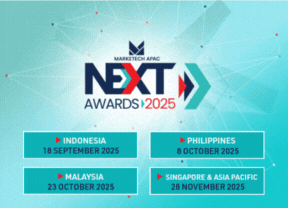Singapore – As artificial intelligence becomes widely adopted, a recent report by customer engagement platform Twilio revealed that nearly half (49%) of the respondents admitted that they would trust brands more if they openly acknowledged their use of customer data and AI-driven interactions.
This indication represents their dedication to a careful balance of innovation, transparency, data privacy, and ethical best practices, maintaining consumer trust despite their use of AI to deliver better customer experiences.
Data from the findings also found that Gen Z (18–27-year-olds) are setting the trends that will shape the future of engagement, considering this generation of digital natives grew up immersed in tech, holds massive buying power, and is breaking the traditional marketing funnel with their unique preferences. This encompasses their higher expectations for authenticity, transparency, and engagement on their terms.
In response to this growing trend, 85% of companies currently plan to adjust or optimise their marketing strategy to accommodate the unique needs and preferences of Gen Z consumers.
Meanwhile, in terms of alignment with the demands of the Gen Z consumer, a significant majority (86%) of business leaders also anticipate a crucial shift from reactive to predictive personalisation across the industry. This includes brands adapting to consumer trends and using AI/ML to create experiences that cater to individual needs and preferences. This move allows them to actively engage customers with the right messages at the right time.
The report further showed that artificial intelligence equips businesses with the ability to process massive amounts of data in real-time, providing the needed insights to craft dynamic engagement with customers.
As part of this shift, 82% of the respondents highlighted the importance of embedding emotional intelligence, or the ability to respond to human emotions, into AI systems.
In addition, 80% of marketers also plan to adopt more sophisticated metrics (customer lifetime value, emotional engagement, and brand affinity) to measure the effectiveness of personalisation beyond traditional engagement and conversion rates.
Among the key findings of the study, 73% of business leaders agree that AI will change personalisation and marketing strategies. Another 58% also believe that AI chatbots will be the most impactful AI-driven personalisation technology over the next 5 years.
Interestingly, 59% expect their teams to be using AI daily by 2025. While 72% of companies are using a customer data platform (CDP) for personalisation, an average of 48% are also using a data warehouse.
Speaking about these findings, Robin Grochol, VP product management at Twilio, stated, “Personalisation is table stakes in the world of marketing. Today’s consumer not only expects brands to understand them, but they want brands to anticipate their needs, and AI is making that a reality.”
“In our latest State of Personalisation Report, we found the majority of business leaders are making the shift from reactive to predictive personalisation to help them deliver on increasingly sophisticated and dynamic consumer demands,” she added.









